You knew your belly would change when you got pregnant, you probably knew your life would change, but did you know your skin would also change? Not only does it change when you get pregnant, but you can likely expect new and different changes to your skin again in the postpartum phase. Here are some skincare issues you might encounter during the early stages of motherhood, and what to do about them so you can feel like your best mama self:
Skin Changes During Pregnancy (and how to keep your glow!)
During pregnancy, a woman's body undergoes various hormonal and physical changes that can affect her skin. Here are some common skin changes during pregnancy:
- Chloasma/Melasma: dark patches on the face around the cheeks, nose, and forehead caused by an increase in hormonal activity. While melasma is the general term for this skin condition, chloasma specifically refers to melasma that we experience during pregnancy. Hydroquinone is considered the go-to ingredient to treat chloasma, however, it is not recommended during pregnancy as some studies report that it is absorbed into the skin with absorption rates as high as 45%! Mushroom Extracts are a great, effective, pregnancy safe alternative thanks to the high concentration of kojic acid.

- Linea nigra: a dark line that runs vertically down the center of the belly and is caused by increased melanin production during pregnancy. It can’t be treated or prevented, but a nourishing skincare routine during pregnancy can help to keep your skin itch-free and strong.

- Stretch marks: As the skin stretches to accommodate the growing baby, it can cause red or purple streaks to appear on the belly, hips, and breasts. There is no guaranteed prevention for stretch marks but pregnancy safe ingredients like gotu kola, blueberry seed oil, macadamia seed oil, st. john’s wort and sweet almond oil help to promote elasticity, making it less likely for the skin to tear as it stretches. They also improve hydration and promote collagen production for healing, all of which can reduce the appearance of marks and scars.

- Breakouts: Where’s that pregnancy glow we were promised!? We asked, and 60% of you said acne was your biggest skin concern while pregnant. Hormonal fluctuations can lead to an increase in oil production, which can clog pore and lead to breakouts. A gentle cleanser that provides deep purification, soothes inflammation and removes excess oils, without stripping your skin of its natural oils is a crucial in keeping pores clear and inflammation at bay.


Postpartum Skin Changes (and getting that glow back!)
The baby’s here, and everything in your new mama body is all back to normal, right? Maybe not! After birth, estrogen and progesterone will both plummet. Simultaneously, there will be a surge in prolactin and oxytocin. This hormone fluctuation will continue over the next few months, with stress and lack of sleep also playing a role.
As it was during pregnancy, postpartum skin conditions can include chloasma, acne, and stretch marks, but might also include:
- Eczema - postpartum eczema, a type of skin inflammation, can develop on your face, hands, and even your nipples, due to hormonal changes and stress. To combat it, avoid extreme temperatures, try to minimize stress (yes, we know!), and make sure you are using gentle ingredients on your skin.

- Dry skin - hormonal changes as well as breastfeeding can cause dry skin in postpartum moms. Up the hydration both internally and externally by investing in a soothing, hydrating new mom skincare routine specifically designed for your needs at this time.
- Itchiness - this tends to often accompany dry skin. Avoiding harsh ingredients and switching to moisturizers with natural lipids like sunflower seed oil or sea buckthorn to refine all your dry patches.

- Postpartum Pigmentation: Some women may experience changes in skin pigmentation, such as darkening or lightening of the skin, after delivery. Don't skip your sunscreen application, and use ingredients like Vitamin C and mushroom extracts that naturally brighten and lighten dark spots.

Remember, skin changes during pregnancy and postpartum are normal and expected! However, it’s essential to take care of your skin with a gentle skincare routine and pregnancy-safe ingredients. Additionally, it’s important to seek medical advice if you experience any skin changes or conditions that require treatment. With the right care and attention, you can maintain healthy and glowing skin throughout your entire motherhood journey!
the guide

From PCOS to perimenopause, hormonal shifts happen at every life stage. Learn why hormone-safe skincare is a must—even if you’re not expecting.
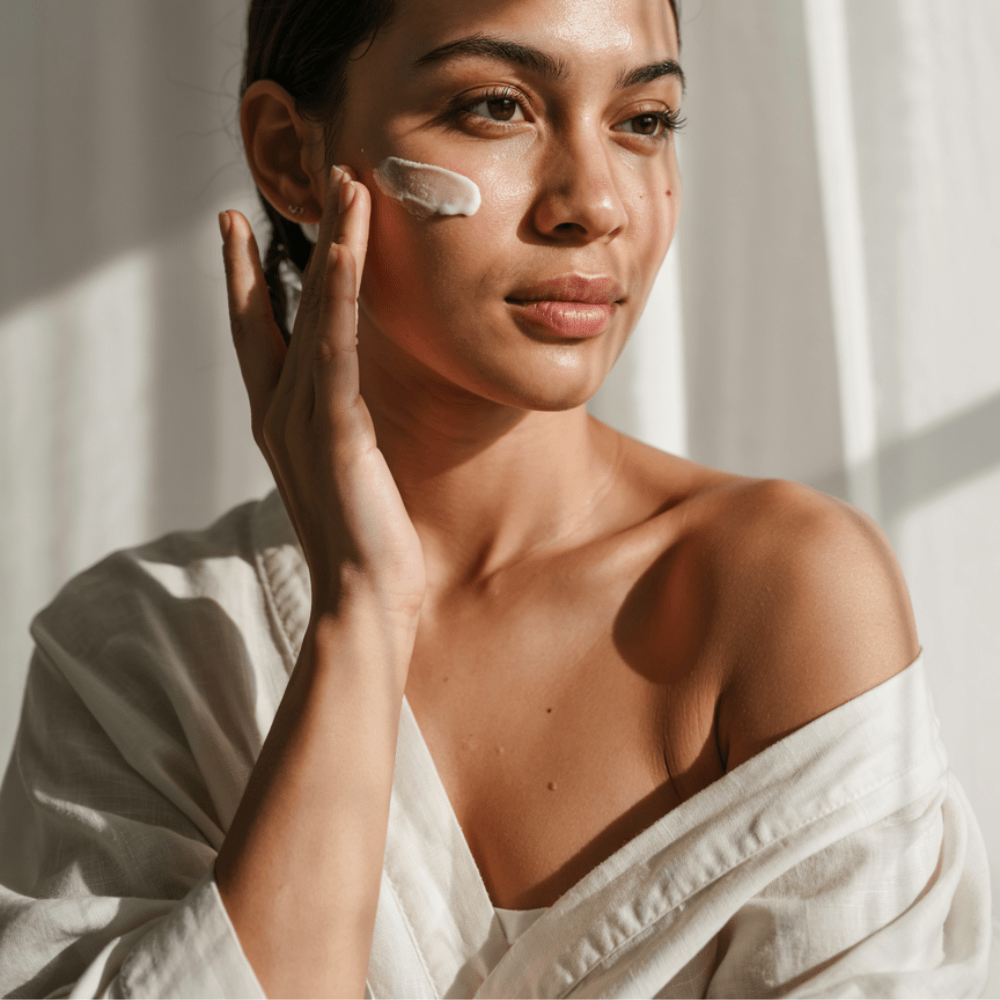
Whether you’re pregnant, postpartum, or perimenopausal, choosing the right ingredients makes all the difference. In this guide, we explain why endocrine disruptors matter, spotlight clean actives a...
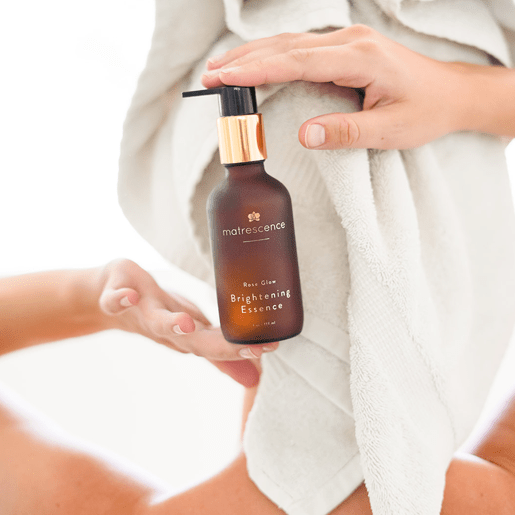
A deep-dive of our Brightening Essence. A dual-action toner and serum that gently exfoliates and hydrates to reveal a vibrant, more even complexion. Formulated for hormonally shifting skin, it help...



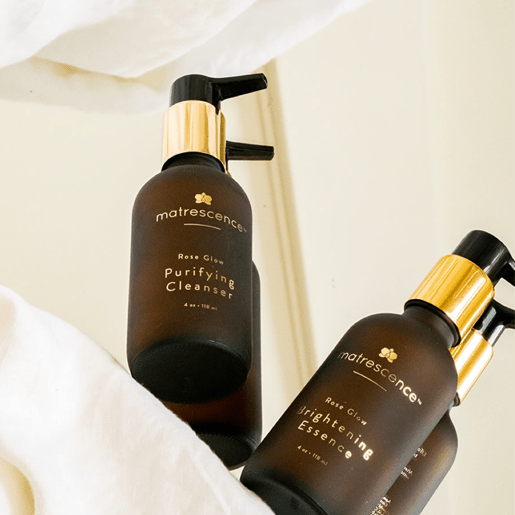

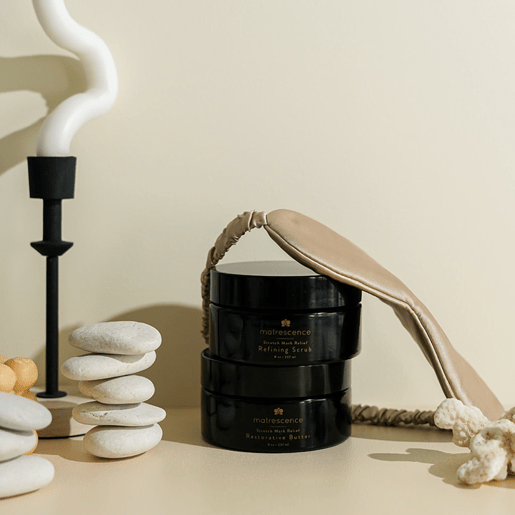
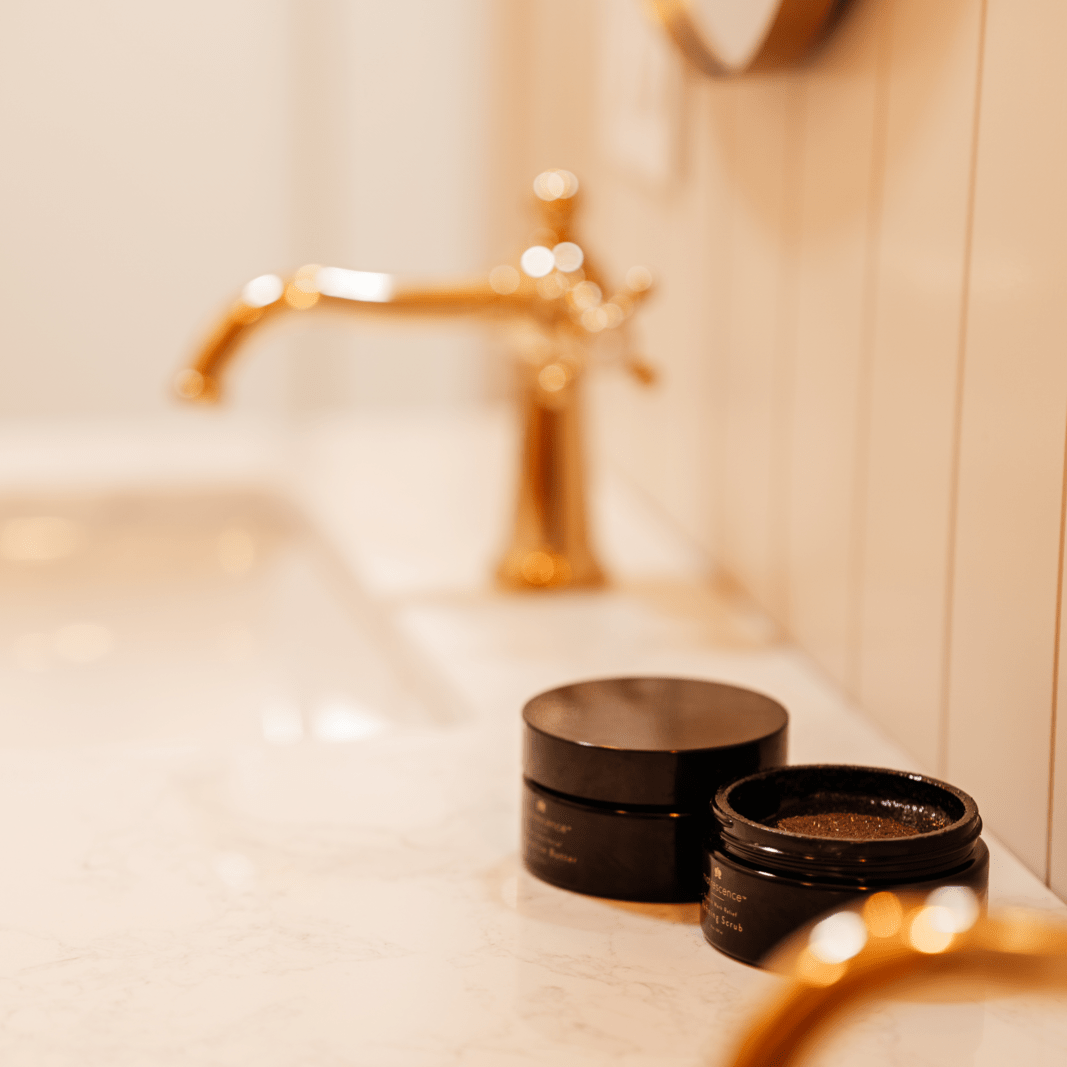

Leave a comment
All comments are moderated before being published.
This site is protected by hCaptcha and the hCaptcha Privacy Policy and Terms of Service apply.